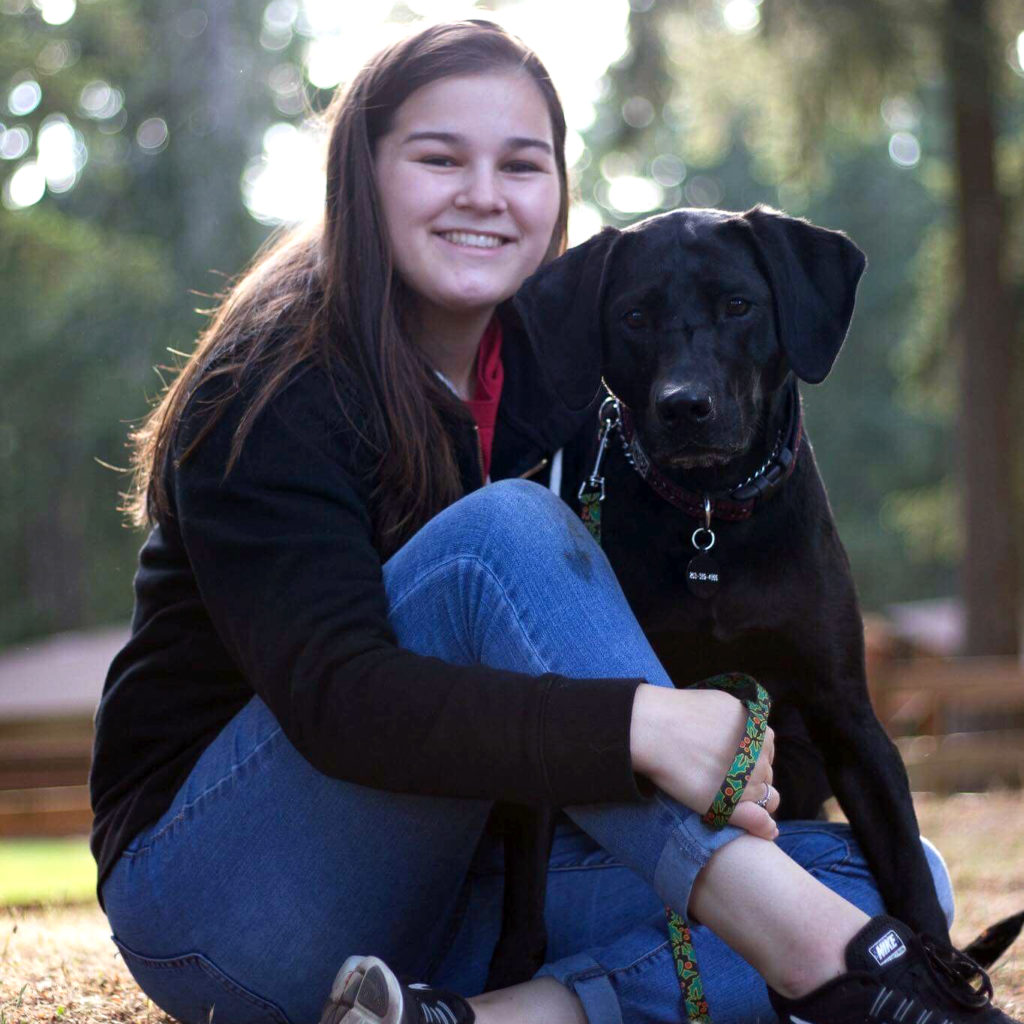
Hannah Davis
Preparing for life as a college freshman can be complicated. Hannah Davis is looking for a college where she can continue to practice martial arts, and where she can make new friends and meet new mentors. But, unlike many of her peers, Hannah is also working with her medical team to create an effective treatment plan for her type one diabetes once she leaves home. And she wants to make sure the campus she chooses has plenty space for her diabetic alert dog, Ivy, to run around.
While her road to college looks a little different than others’, Hannah knows that wherever she goes, she’ll manage. “I’ve always been one to have a positive outlook on life, no matter what is thrown my way,” Hannah said.
Hannah’s journey with type one diabetes started when she was ten years old. She was unnecessarily and unintentionally losing weight, she was hungry and thirsty all the time, and, as she puts it, she “became rather moody.” At first, Hannah’s family thought she was simply going through adolescence. But at Hannah’s next doctor’s appointment, her pediatrician immediately smelled ketones on her breath, a sign of a dangerous condition called diabetic ketoacidosis. He referred her to the hospital, where she was diagnosed with type one diabetes. In short, diabetes means that the body doesn’t produce enough insulin or is unable to use insulin effectively, leading to unstable blood sugar levels.
Soon, Hannah was learning to give herself daily insulin injections and training to use an insulin pump, a small computerized device that delivers continuous, fast acting insulin through a catheter inserted under the skin of the abdomen. Innovative medtech helped Hannah take full ownership of the management of her disease, even at just eleven years old. “I wanted to be the one in control of my care,” said Hannah.
Now, Hannah also uses continuous glucose monitoring system, which records blood sugar levels constantly. A glucose sensor is inserted under the skin to measure blood sugar levels in tissue fluid; the device is connected to a transmitter that sends blood sugar readings via wireless radio frequency to a monitoring and display device.
“Overall, I’ve been able to manage my diabetes extremely well using this equipment. Because I’m on a continuous glucose monitor, I’m able to view a graph of my blood sugars over the past 24 hours. This also helps me catch many potential issues before they arise and reduce the number of times I have to check my blood sugar. As for managing my pump, I administer insulin quite frequently. Whether it is to correct for an out of range blood sugar, or a snack I am having between classes, having a pump makes daily life much easier for me.”
In addition to these medtech solutions, Hannah also has a diabetic alert dog, or D.A.D., named Ivy to help her control her diabetes. “A D.A.D can be extremely valuable for someone living with diabetes for so many reasons,” said Hannah. “Ivy has caught many blood sugar drops or rises before I have even felt them.”
Hannah’s integrated diabetes management system has helped her, as she says, “learn how to take care of my own diabetes by allowing me to have a large voice in my treatment plan.” Hannah has used her voice not only to advocate for herself, but to advocate for others in the diabetes community.
“I traveled to Washington D.C. to lobby for the rights of senior citizens living with type one diabetes. While we were there, I was able to tell my story in a new light. While yes, I had shared my story many times through the Juvenile Diabetes Research Foundation, being able to lobby those who could enforce the change we needed to see was eye opening.”
Members of Congress aren’t the only ones who can learn from Hannah’s story. Hannah is just one of 26 million Americans who are thought to have diabetes. To those living with the disease, Hannah’s biggest piece of advice is: Don’t stop living your life.
“I lived in fear of my diabetes for many years, not wanting to join different programs because I wasn’t sure how diabetes was going to affect my performance. Over the past few years, I made a promise to myself to live life to its fullest and not be scared of how diabetes will affect me. This decision has changed my life in so many ways and has allowed for some of my closest friendships to bloom.”
And to those who don’t have diabetes, Hannah has just one request. “One thing I would like non-diabetics to know is that many of the effects of diabetes are far from what many think,” said Hannah. “They are rarely what they seem. So I ask others to please educate themselves.”
Click here to learn more about diabetes and the role of medtech in diabetes care.